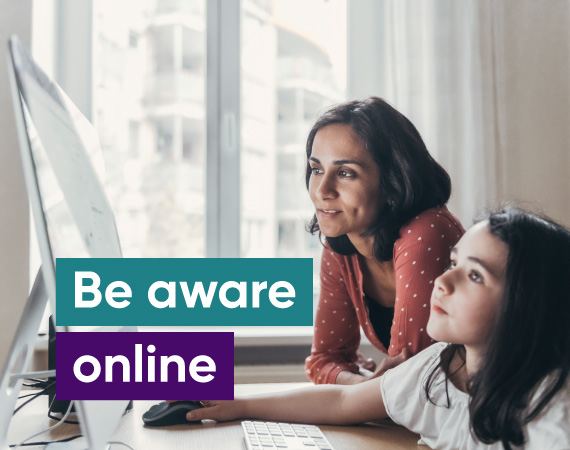
The internet is a beautiful, wonderful, always-growing place, and an incredible resource for people of all ages. Virtually (see what we did there?) anyone, anywhere, can have access to whatever information they’re looking for! Communities, friendships, relationships and more are all made possible through the web. But for young minds, this amount of information and access might be overwhelming.
With their logical and critical thinking skills still developing, they don’t have the skills to handle situations the way an adult would. And let’s admit it, even as adults on the internet, we sometimes end up clicking on a pop-up or fighting for a refund from a slightly sketchy online store we knew we shouldn’t have purchased anything from. For kids who are still learning how to create healthy boundaries, develop trust safely, and protect themselves, having unmonitored time on the internet is like diving into the deep end of the pool without a lifeguard.
Here are 5 risks you should be aware of, and address with your child.
1) Scams
This is one of the scariest things a kid can experience online. Whether it’s through their first email or social media account, scammers look for the most vulnerable populations online. You’ve probably read articles about online scams that are lurking around the internet.
To keep your child safe, it’s important to keep open, honest communication between you and your child. Let them know that they can share anything with you, and to always come to you first if something’s unusual. Tell them that it’s important to ONLY click on a link or website if it’s one they know and trust.
2) Fake News
While the internet’s a great place to learn and find a community of people who are passionate about the same things, it can also be confusing. Let your child know that not everything they read will be true- even from ‘real-looking’ accounts on social media, or a ‘seemingly-credible’ news source. Instil curiosity and a hunger for truth in your children, and they won’t get tricked by a flashy headline.
The bottom line is: the best way to protect your child is to encourage a relationship of trust and support. That way when your child is unsure or are in trouble, they come straight to you for help and advice.
3) Phishing
Phishing might fall under the category of spam, but it’s a very common type of scam, especially for children using the internet. Usually, this looks like a message from a stranger, fake business account, or ‘mutual friend’ giving good news!
“Congratulations, you’ve won!”
“Choose your prize by clicking on this link.”
“You’ve been selected for a HUGE opportunity!”
Make sure your kids know that, unless they entered a competition or drawing (with your consent), they’re not going to win any random prizes (even if they are super special, talented, cool kids).
4) Malware
In most cases, those misleading your child are trying to take something from you, usually using a virus or malware. There are various different kinds of malware, but to keep it simple, it’s created to cause damage to your computer or collect private information illegally. This usually happens when your child’s asked to try out a free game, or download episodes of their favourite show for free.
Keep your computer safe with a good firewall and other antivirus protection systems. Keep a rule with your child to always ask permission before downloading anything on the internet.
5) Catfishing
This is every parents’ nightmare. This happens primarily through social media, but can also happen using websites like Omegle and Tinychat, which connect strangers in private chat rooms. If you’re worried, try having “the talk” with your children about making new friends online. Additionally, it’s always good to stay interested in what (and who) interests your child. If they make a new friend, encourage them, and ask them questions without accusing them or embarrassing them.
Now you know how to keep your child safe online, check out our other blog to keep the whole family safe. To save money while you and your family safely browse the internet, check out our great range of internet plans.





